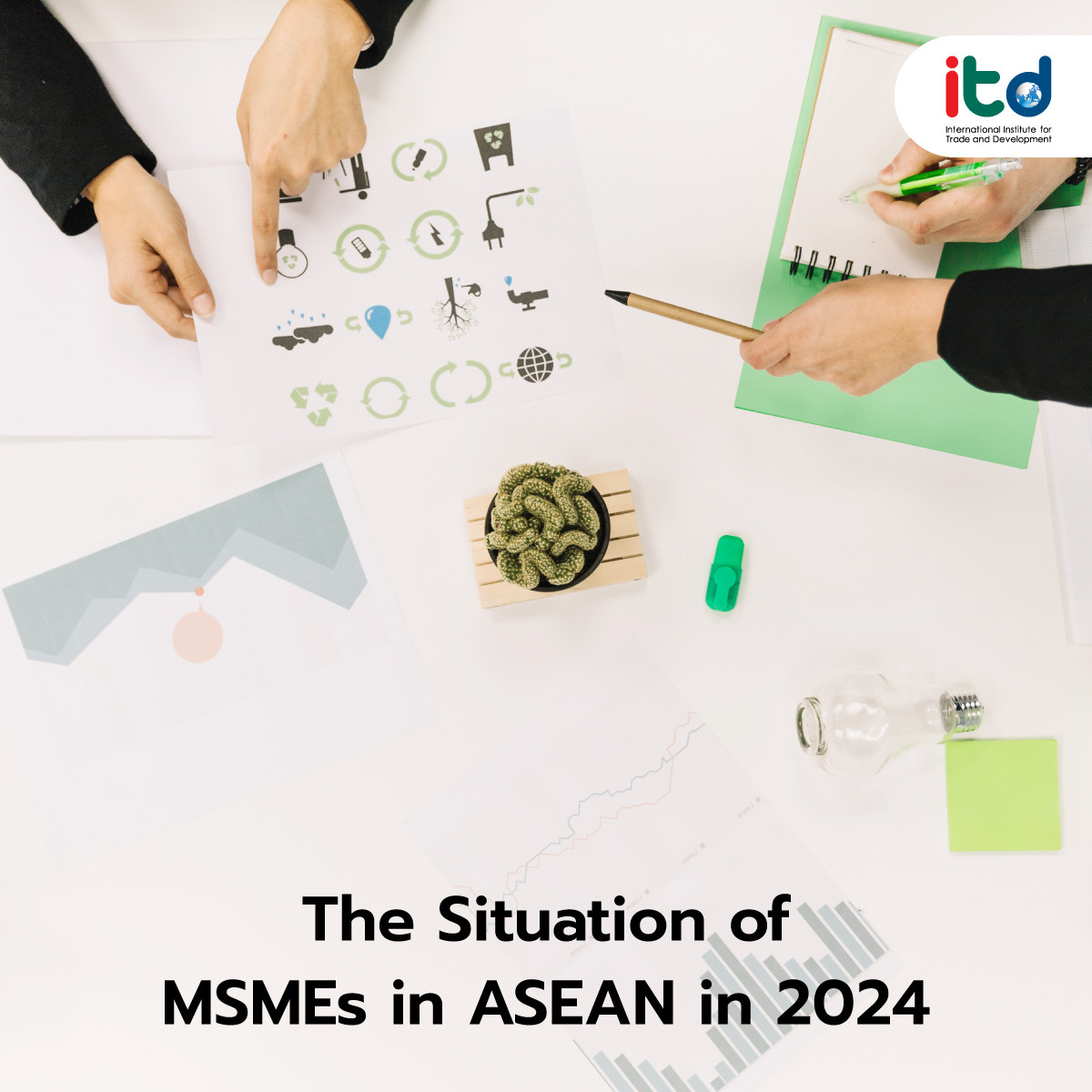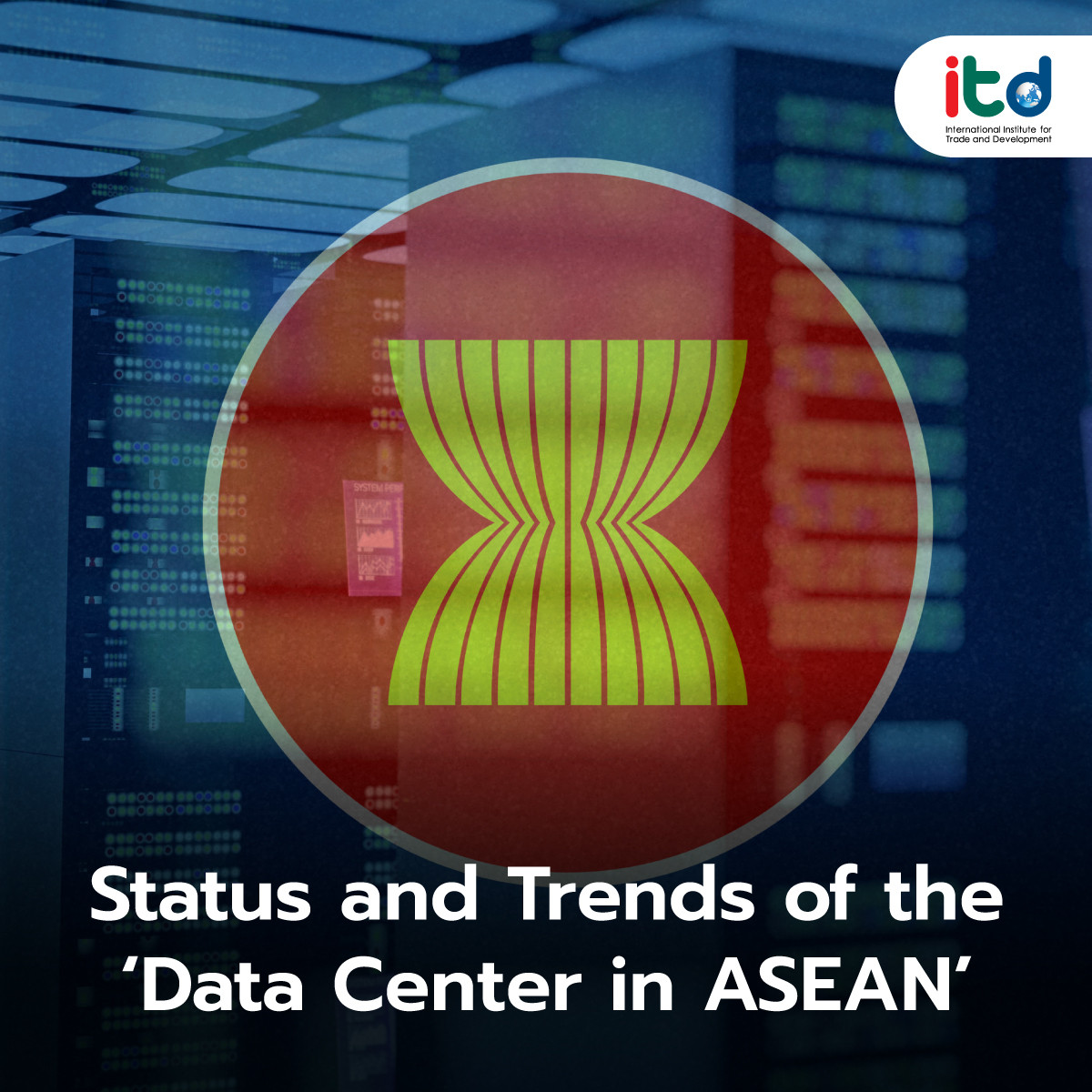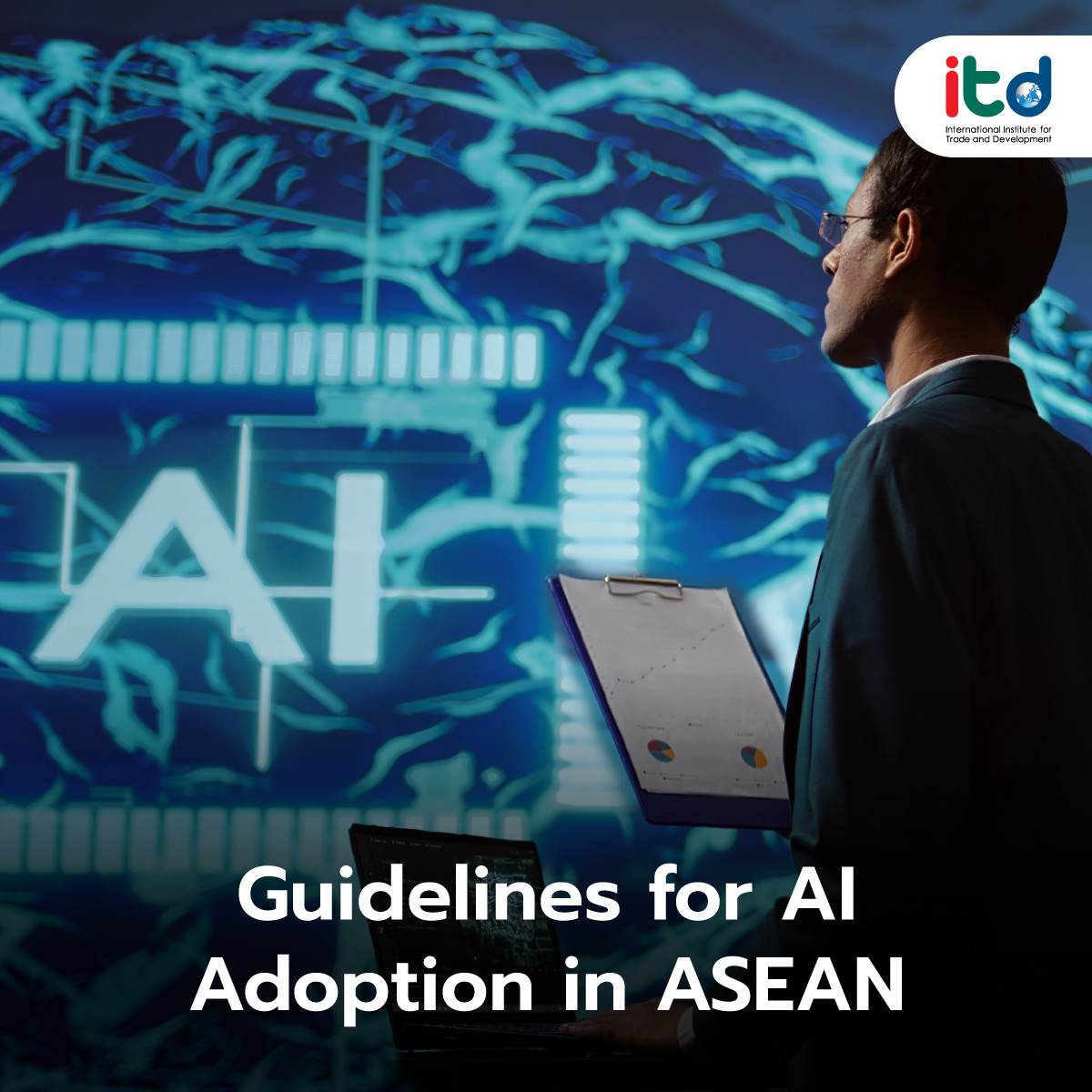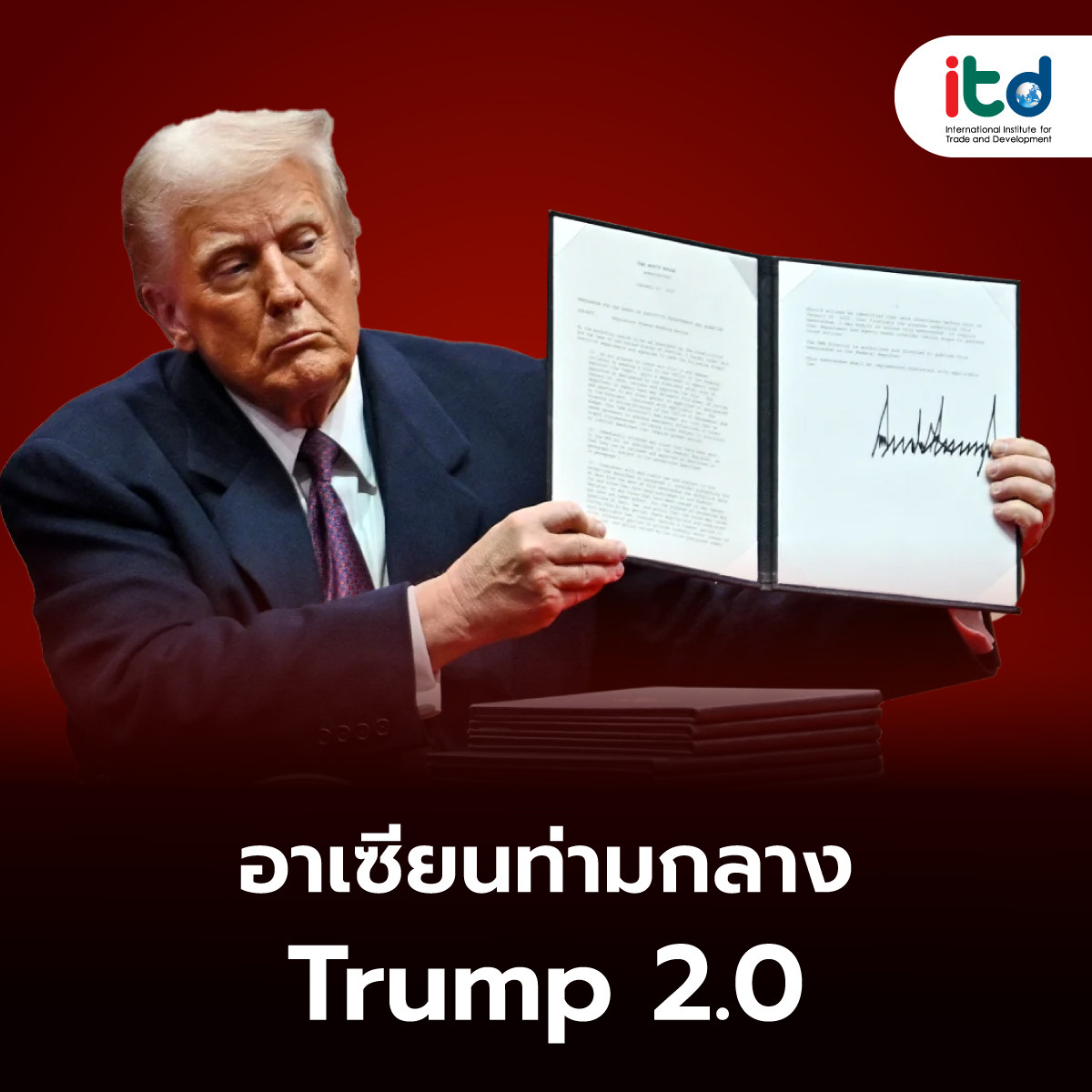About Documents
The Southeast Asian region is a hub for Micro, Small, and Medium-Sized Enterprises (MSMEs), which play a vital role in both local and regional economies. The Asia Small and Medium-Sized Enterprise Monitor 2024, published by the Asian Development Bank, highlights the significance of MSMEs in job creation, productivity enhancement, and fostering sustainable economic growth. Despite facing numerous challenges, MSMEs benefit from opportunities provided by digital transformation and government support, which open pathways for future development.
MSMEs account for an average of 98.7% of all businesses in Southeast Asia and contribute to 64.6% of total employment as of 2023. In Thailand, MSMEs employ 70.4% of the workforce, making it one of the leading countries in the region in this regard. Most MSMEs operate in the service sector, such as retail and wholesale trade, which plays a critical role in agriculture-dependent nations like Laos and Cambodia, where MSMEs enhance the agricultural supply chain and bolster rural economies.
While MSMEs are key players in domestic economies, their involvement in exports remains limited. As of 2023, MSMEs contributed an average of just 15.1% to the region’s total export value, with Thailand’s share standing at 13.4%. Key challenges include expanding market access and reducing production costs. Promoting business clusters and developing international production standards are essential to overcoming these hurdles.
Access to financial support is another crucial factor for MSME growth. In 2023, loans to MSMEs constituted an average of 17% of total regional lending. Countries like Malaysia and Indonesia have successfully increased credit support for MSMEs following the COVID-19 crisis. However, nations such as Laos and the Philippines continue to struggle with limited access to financing.
Although the non-performing loan (NPL) ratio for MSMEs decreased from 7.3% in 2019 to 5.5% in 2023, it remains higher than the overall financial system average. Furthermore, MSMEs have limited access to funding from non-bank financial institutions, such as development finance institutions and microfinance companies.
The digital transformation is a key trend for MSMEs in the region. Many countries have initiated supportive programs, such as technology development grants in Indonesia, improvements in IT infrastructure in Laos, and digital skills training in the Philippines. Encouraging informal businesses to transition online can also help MSMEs access government support more easily.
Green MSMEs are gaining importance in promoting sustainable development. Encouraging MSMEs to adopt environmentally friendly technologies and adhere to Environmental, Social, and Governance (ESG) principles can enhance their capabilities and drive sustainable growth. Government support, such as financial grants and tax exemptions, can further boost the number of green businesses in the region.
The report provides recommendations and future directions for MSME development, including: establishing clear and trackable definitions for MSMEs to ensure accurate and up-to-date policy data, promoting service sector development, as MSMEs have a significant presence in this area, creating business clusters to enhance export capabilities and integration with global supply chains, supporting digital transformation through government initiatives and infrastructure investment, encouraging green businesses and environmentally and socially conscious development, strengthening the role of women entrepreneurs to promote inclusivity and equity in the economy. These measures aim to unlock the full potential of MSMEs and contribute to sustainable economic growth in Southeast Asia.
Author:
Mr. Wimon Punkong
Deputy Executive Director (Academic)
International Institute for Trade and Development (Public Organization)
www.itd.or.th
Publication: Bangkok BIZ Newspaper
Section: First Section/World Beat
Volume: 37 Issue: 12791
Date: Wednesday, 11, 2024
Page: 8 (left)
Column: “Asean Insight”






